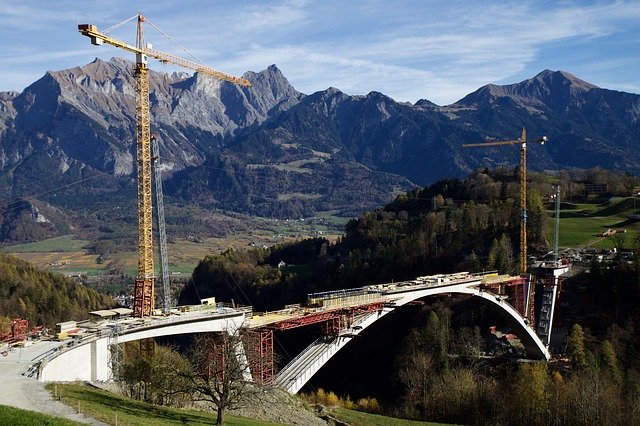
A civil work allows the development of infrastructure that the entire population can use.
The thing made or produced by man is known as a work. It may be a material or intellectual product, protected by various laws. The concept is also used to name the process of constructing a building or infrastructure in general.
Civil , for its part, is an adjective that refers to what belongs to the citizens or the city. In the field of law , civil is that which pertains to private (as opposed to public) relationships and interests.
What is a civil work
The notion of civil works is linked to the development of infrastructure for the population . In this case, the use of the term civil comes from civil engineering , which receives this name to differentiate itself from military engineering .
Civil works, therefore, is the application of notions of physics, chemistry, geology and calculation for the creation of constructions related to transportation, hydraulics, etc.

The construction of a bridge is a civil work.
Organization and use of the territory
Civil works tend to contribute to the organization of the territory and the use made of it. Roads that enable the circulation of means of transport, dams that help manage water resources, bridges that allow crossing a river and sewers are some examples of civil works.
In the broad group of civil works, we can distinguish works belonging to geotechnical engineering (which studies the resistance between particles to guarantee whether the soil can support a certain structure), structural engineering (estimates the resistance of elements subjected to loads) , transportation and road infrastructure engineering (specialized in meeting mobility needs) and hydraulic engineering (linked to the execution of water-related works).
Benefits of a civil work
Society benefits directly from civil works, and no modern city can sustain itself without this action of human beings on nature, although this does not mean that it is correct for us to modify our environment instead of adapting to it, as they do. rest of the species on the planet. Another name for this concept is public work , very appropriate given the nature of the initiatives it represents.
But it is important to note that throughout history, civil works have not always existed as a fundamental part of the organization of societies. In the past, the greatest interest of every State was focused on its military strategy, and for this reason they used to use most of their resources to grow their armed forces. This explains the need to contrast civil work and military work.
Once the bourgeoisie rose to power, the States began to give importance to the social good and, consequently, to use their economic means to carry out constructions that benefited the entire community. This gave rise to various undertakings, since before the work itself, a series of studies are necessary, both at a technical and social level, to analyze its potential impact and to ensure that it generates a significant change.
Travel facilities
Cities in which civil works is a priority are characterized by excellent communication through means of transportation, thanks to the strategic construction of tunnels and bridges that effectively connect the main points of interest.
While changes in technology mean that more and more people can work from home, urban and intercity travel remains a necessity for most large city dwellers, every day. Therefore, it is of great importance that there is constant work to improve the organization of public roads, and civil works plays a fundamental role in these issues.
